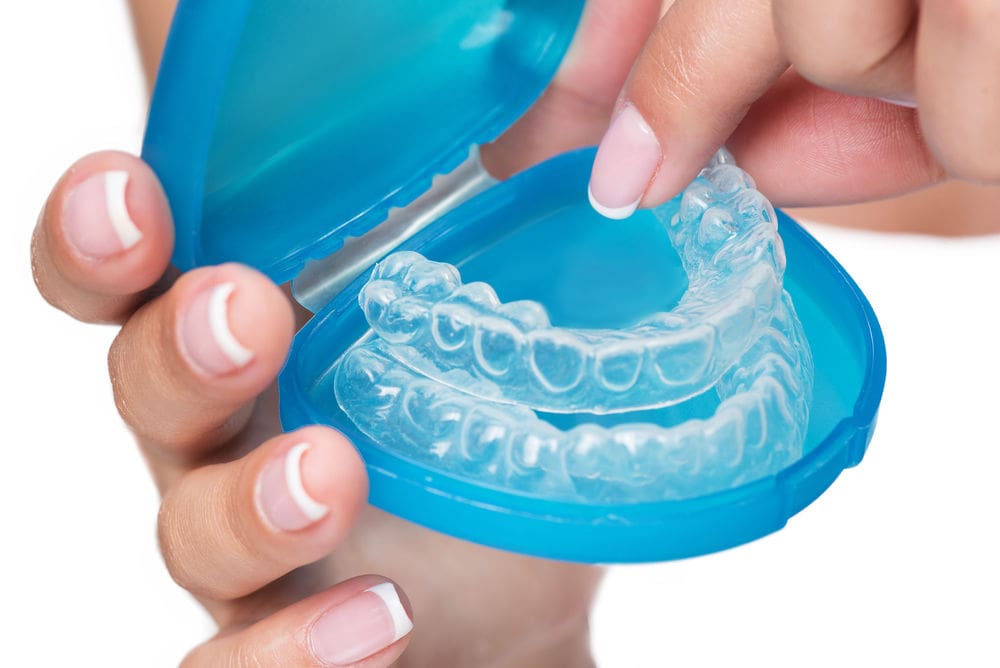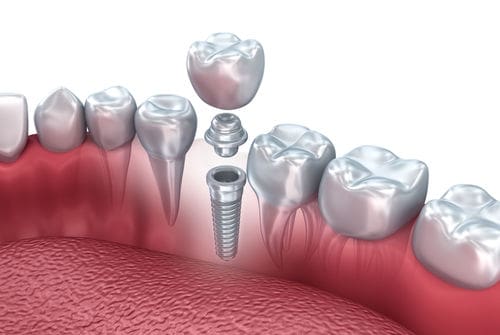Almost everyone has heard of dental implants by now. Implants are a great solution for replacing missing teeth. But what are they really? What are they made from? How long do they last? And what should I expect if I receive a dental implant? These are some questions that you may have when researching this innovative dental technology.
What are dental implants?
Dental implants are made up of three parts: a titanium post, an abutment and a dental crown. The titanium post is screwed into the jawbone, which fuses around it. Once this process of fusing is complete, your dentist will place an abutment onto it, allowing a crown to be fitted over the abutment.
What are the benefits of receiving a dental implant?
Receiving a dental implant helps to prevent a number of problems that typically occur whenever you have one or more missing teeth. One of these is the tendency of teeth surrounding a gap to begin shifting into this empty space, which can lead to problems with your bite.
Another serious problem prevented by dental implants is known as bone resorption. If you do not have a tooth root present, whether it is artificial or not, the underlying bone begins to melt away. Receiving a dental implant means that you preserve bone and prevent unpleasant changes to your facial contours that can occur whenever a tooth or teeth is missing for a long period of time.
How long do dental implants last?
Every individual is unique, but implants can be expected to last for a lifetime. It is important to realize, however, that you must care for your new dental implant just as you would for a natural tooth. Although the materials found in the implant will not deteriorate, the gum and bones supporting this structure can deteriorate if you are not practicing good oral hygiene.
What should I expect when receiving a dental implant?
Receiving a dental implant normally occurs in two stages. At your first appointment, your dentist will place a titanium post into your jawbone. Over the next few months, your jawbone should fuse to this metal post. At a subsequent appointment, an abutment will be placed over this post to allow for the placement of a dental crown that provides a chewing surface and matches the appearance of your original tooth.
One situation that sometimes arises is that a patient does not have sufficient underlying bone mass available to support a dental implant. This typically occurs whenever one or more missing teeth have been missing for a long period of time and bone resorption has occurred.
If this is the case with you, don’t worry. You may still be able to receive a dental implant in this location by undergoing a bone graft procedure. Once the donor bone material has been put into place, you can have a dental implant placed that will provide both the form and function of a natural tooth.
Learn More
Contact Liberia Dental Care to learn more about dental implants. Our professional team is available and accepting new patients! Call 703-260-1200 today.









